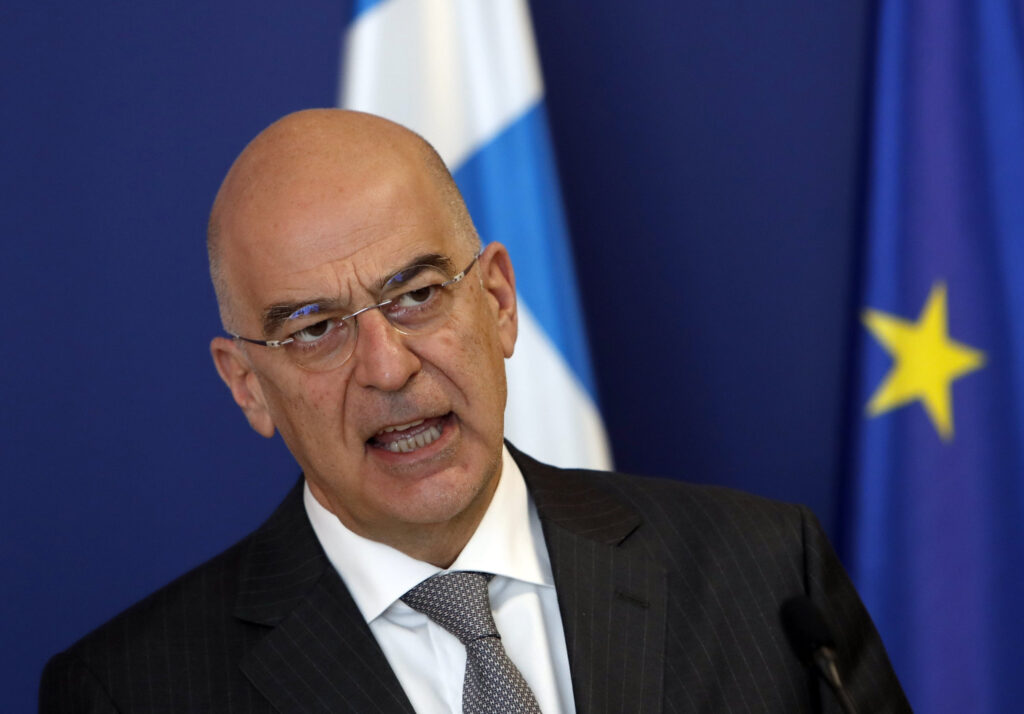The devastating earthquakes in Southeast Turkey, which affected 10 of the country’s most densely populated counties, also opened new doors in diplomatic relations with a number of countries, such as Greece and Armenia within the so-called “earthquake diplomacy”.
The Minister of Foreign Affairs of Greece, Nikos Dendias, arrived today in Adana, Turkey, where he was greeted with a warm hug by his Turkish counterpart, Mevlüt Çavuşoğlu. A short meeting between the two ministers followed at the airport, after which they boarded a helicopter to visit the earthquake-affected areas in Hatay district, the ANA-MPA agency reported, quoted by BTA.
The Greek foreign minister promised Greece’s support for Turkey “to overcome these difficult days to continue”, reports Anadolu Agency. The Turkish first diplomat, for his part, expressed gratitude for Greece’s support after the devastating earthquakes in the southeastern part of the country.
Turkey and Greece should not wait for an earthquake to smooth over their relations, Dendias said, quoted by the Anadolu Agency.
The Greek Foreign Ministry informed that he will meet with members of the Greek aid mission working in the areas devastated by the earthquakes and will be accompanied by his Turkish counterpart throughout. Dendias will visit the operation center in Antakya and will be briefed on the latest developments related to the evacuation and rescue operations, as well as the humanitarian needs that have arisen. During the visit, ways for further assistance from Greece to overcome the devastating consequences of the earthquakes will be discussed, the Greek Ministry of Foreign Affairs announced.
The Greek Prime Minister has instructed the Permanent Representation of Greece in Geneva to take action so that urgent humanitarian aid is provided to Turkey and Syria through the UN Office for the Coordination of Humanitarian Affairs, reports ANA-MPA. In addition, the Deputy Minister of Foreign Affairs, Andreas Katsaniotis, has taken over the coordination of agencies and individuals willing to assist in the collection of humanitarian aid for the affected areas in Turkey and Syria.
At the same time, BTA correspondent Nahide Deniz reports that the Alican border crossing between Turkey and Armenia, which was closed for 30 years due to the political problems between the two countries, was opened yesterday for the first time to allow trucks carrying aid to the earthquake-stricken areas to pass.
This morning, aid trucks from Armenia crossed into Turkish territory through Agder, to the city of Adyaman, which is among the most affected districts, diplomatic sources said.
A total of 5 trucks loaded with 100 tons of food, medicine, water, hygiene materials and technical equipment, as well as a rescue team of 28 people from Armenia, are traveling to Adyaman, said Turkey’s special representative for Armenia, Ambassador Serdar Kulç, who thanked Yerevan for this gesture.
Yesterday, another rescue team from Armenia, together with the team of the government’s Disaster and Emergency Management Directorate (AFAD), managed to rescue an 8-year-old girl alive.
Meanwhile, the number of people killed in the earthquakes since Monday (February 6) has reached 24,617 people, according to AFAD data, and the injured are over 80,000. The scale of the tragedy exceeded that of August 1999, when earthquakes in the Marmara region and Istanbul killed 17,000 people and injured around 50,000.
source: dir


